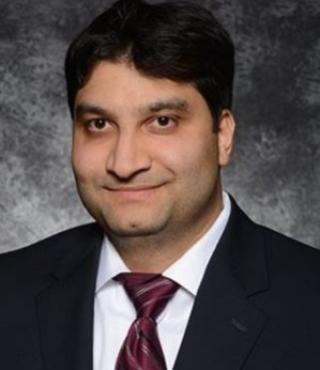

What Our Physicians Are Saying
“This is an undertreated part of cardiology, especially in this area. There is a lot of opportunity to help the community.”
The electrophysiology program helps you manage your heart arrhythmia (irregular heartbeat). Arrhythmias can cause you to feel symptoms such as palpitations, shortness of breath and dizziness.
At Loma Linda University Health — Murrieta & Vascular Center, we offer arrhythmia treatments that can dramatically improve your quality of life. We treat irregular heartbeats in any area of the heart.
Atrial fibrillation (AFib) is a condition where the heart beats irregularly, causing increased risk of stroke and other complications. As leaders in the region for structural heart disease care, we offer a wide range of treatments for AFib, including:
Your treatment will be customized to your specific diagnosis and needs.


“This is an undertreated part of cardiology, especially in this area. There is a lot of opportunity to help the community.”
You’ll most likely see a general cardiologist during your first visit. The cardiologist will test for arrhythmia using an electrocardiogram (ECG or EKG), event monitor or loop recorder.
If tests show you have an arrhythmia, you will be referred to an electrophysiologist. Our electrophysiologists talk to you about the best treatments for your condition, as well as each option’s potential risks and benefits. You may need further testing to see if any problems are reversible or if any other health concerns may impact your treatment.
Depending on your condition, treatment can consist of medications and minimally-invasive procedures (those with fewer incisions and faster recovery). Arrhythmia medications include heart rate control medications and more advanced rhythm medications.
Ablation is a procedure that can be highly effective at treating certain arrhythmias. When applicable, we offer ablations of the right and left side of the heart. Right side ablations usually last one hour and consist of surface ablation techniques (SATs) for atypical flutters. Ablations on the left side of the heart (which treat conditions like atrial fibrillation and ventricular tachycardia) are more complex and can last 2-3 hours.
Most patients spend the night for observation and can typically go home the following morning. You’ll see your electrophysiologist two weeks after the procedure and, depending on the ablation performed, may be able to stop medications.
Heart arrhythmias can become worse over time and some are life-threatening. If you’re experiencing unusual heart rhythm, pain, palpitations, dizziness or weakness, talk to your doctor right away. For more information, please contact 951-290-4000.


“This is an undertreated part of cardiology, especially in this area. There is a lot of opportunity to help the community.”
You’ll most likely see a general cardiologist during your first visit. The cardiologist will test for arrhythmia using an electrocardiogram (ECG or EKG), event monitor or loop recorder.
If tests show you have an arrhythmia, you will be referred to an electrophysiologist. Our electrophysiologists talk to you about the best treatments for your condition, as well as each option’s potential risks and benefits. You may need further testing to see if any problems are reversible or if any other health concerns may impact your treatment.
Depending on your condition, treatment can consist of medications and minimally-invasive procedures (those with fewer incisions and faster recovery). Arrhythmia medications include heart rate control medications and more advanced rhythm medications.
Ablation is a procedure that can be highly effective at treating certain arrhythmias. When applicable, we offer ablations of the right and left side of the heart. Right side ablations usually last one hour and consist of surface ablation techniques (SATs) for atypical flutters. Ablations on the left side of the heart (which treat conditions like atrial fibrillation and ventricular tachycardia) are more complex and can last 2-3 hours.
Most patients spend the night for observation and can typically go home the following morning. You’ll see your electrophysiologist two weeks after the procedure and, depending on the ablation performed, may be able to stop medications.
Heart arrhythmias can become worse over time and some are life-threatening. If you’re experiencing unusual heart rhythm, pain, palpitations, dizziness or weakness, talk to your doctor right away. For more information, please contact 951-290-4000.